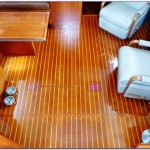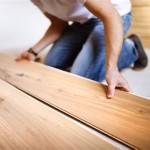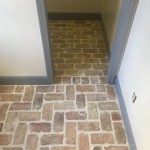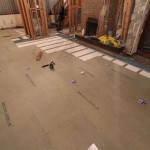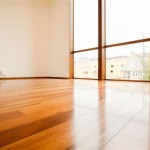Installing Vinyl Flooring On Particle Board: A Comprehensive Guide
Vinyl flooring has gained immense popularity in recent years due to its durability, ease of maintenance, and affordable price point. When installing vinyl flooring, selecting the appropriate base surface is crucial for its stability, longevity, and overall performance. Particle board, a durable and cost-effective wood panel, serves as an excellent base for vinyl flooring. This guide will delve into the essential aspects of installing vinyl flooring on particle board, ensuring a successful and aesthetically pleasing outcome.
Preparing the Particle Board Base
Before installing vinyl flooring, the particle board base must be properly prepared to ensure a smooth, level, and stable surface. Here are the steps involved in preparing the particle board base:
- Level the Surface: Use a spirit level to check for any unevenness in the particle board base. Sand or plane down any high spots, and fill in any low spots with self-leveling compound or a wood filler specifically designed for particle board.
- Clean the Surface: Remove any dust, debris, or adhesive residue from the particle board surface. This can be done using a vacuum cleaner and a damp mop or by wiping down the surface with a clean cloth and a mild cleaning solution.
- Treat for Moisture: Moisture can damage vinyl flooring and cause it to buckle or warp. Apply a moisture-resistant primer or underlayment specifically designed for particle board to prevent moisture penetration.
Choosing the Right Vinyl Flooring
When selecting vinyl flooring for installation on particle board, consider these factors:
- Type of Vinyl: There are two main types of vinyl flooring: luxury vinyl tile (LVT) and sheet vinyl. LVT comes in individual tiles that are glued or clicked together, while sheet vinyl is a continuous sheet that is rolled out and adhered to the subfloor.
- Thickness and Wear Layer: The thickness of the vinyl flooring determines its durability and resistance to wear. For particle board installations, a thicker vinyl with a thicker wear layer is recommended.
Installing the Vinyl Flooring
Once the particle board base is prepared and the vinyl flooring is selected, the installation process can begin. Follow these steps for successful vinyl flooring installation:
- Plan the Layout: Determine the starting point for the vinyl flooring installation and dry-fit the first few rows or planks to ensure a proper fit.
- Spread the Adhesive: Apply vinyl flooring adhesive to the particle board base using a notched trowel. Spread the adhesive evenly over the area where the vinyl flooring will be installed.
- Lay the Vinyl: Carefully lay the vinyl flooring onto the adhesive, ensuring that it aligns properly with the surrounding tiles or planks. Press down firmly to ensure a secure bond.
- Trim and Finish: Once the vinyl flooring is installed, trim any excess around the edges using a utility knife. Install base moldings or quarter rounds to conceal the edges and provide a finished look.
Additional Tips and Considerations
- Use a high-quality vinyl flooring adhesive specifically designed for particle board installations.
- Allow the adhesive to set properly before walking on or placing furniture on the new flooring.
- Regularly clean and maintain the vinyl flooring to preserve its appearance and extend its lifespan.

Can You Put Vinyl Plank Over Particle Board Ready To Diy

How To Lay Vinyl Tile Over Particle Board Ehow

Can You Put Vinyl Plank Over Particle Board Ready To Diy

Can You Put Vinyl Plank Over Particle Board Ready To Diy

How To Prevent Flooring Problems Prior Installation

Complete Guide Underlayment For Vinyl Sheet Flooring

Can You Put Vinyl Plank Over Particle Board Ready To Diy

How To Install Vinyl Plank Flooring On Plywood Floor

Instructions For Installation Of Spc Hybrid Vinyl Plank Flooring

Particle Board As A Flooring Solution
See Also

